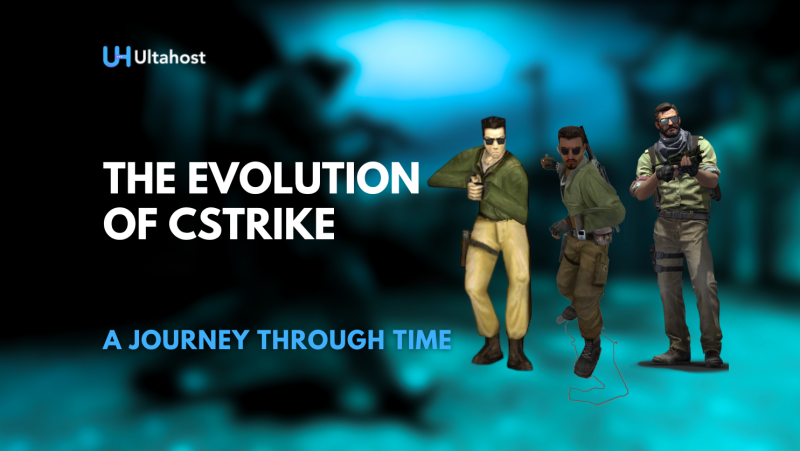The very first time a simple mod altered the scale of the competitive gaming environment, a mod was changed. Essentially, the piece is an odyssey of a series that besides surviving the years has also managed to keep on changing itself while at the same time being consistent with the original tactical gameplay which made it famous in the gaming world. We dig deeper into how this timeless title with its ups and downs and even a few innovations turned out to be the very first master of the first-person shooter genre that we still acknowledge today.
The narrative centers on a duo of developers who were so passionate that they decided to make a simple but brilliant mod for a popular game, thus, igniting an extremely enthusiastic community. Their creation, a baby born from the need for a different multiplayer gaming style, had gone quickly as far as Thule (a place in the far north) spreading its name much more than what they had thought of. Certainly, it was an indication that the gamers were longing for something new and it had to be very hard to beat it.
One big shot studio was among those who took notice of this achievement and saw the unbelievable potential hidden in the creation of the community. They worked alongside the mod’s developers to get it converted from a hobby to a professional, independent product. This is where the esports revolution has officially begun, a franchise which would ultimately turn esports world into its daughter.
If you’re new to Counter-Strike, then you should check out this complete Counter-Strike Series articles for clear, helpful tips.
Key Takeaways
- Humble Origins: The Counter-Strike franchise was initially a free mod for Half-Life in 1999, made by two developers who were very passionate about it, and due to its huge success, it ended up being a standalone game.
- The Gold Standard: Counter-Strike 1.6 is still called the most influential version by many, as the basic game features that were used most of the series for the next several years and also the first professional competitions were set up with it were established.
- Engine changes and community divisions: The franchise has experienced two major shifts in its engine with the first one being Counter-Strike: Source in 2004 that caused a split in the community and the last change with Counter-Strike 2 in 2023 that brought the player base together on a contemporary engine.
- One of the greatest successes in the world of Esports: The release of Counter-Strike: Global Offensive (CS:GO) in 2012 was a watershed moment that signaled the advent of the current skin economy, official matchmaking, and the Major tournament circuit – all of these factors combined to make CS:GO a dominant global esports power.
- The Beginning of CS2: The latest iteration, Counter-Strike 2, is a complete overhaul of the Source 2 engine with innovative elements such as sub-tick updates and dynamic smoke grenades that not only keep the game’s heritage alive but also expertise it into the future.
1999 – Half-Life: Counter-Strike
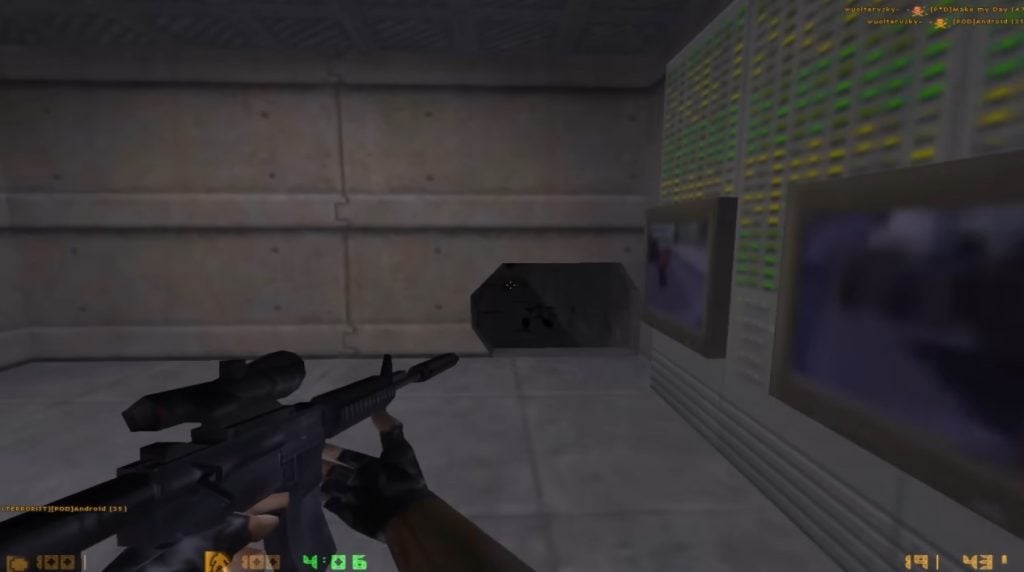
Counter-Strike’s tale was originally a ’90s mod that was halfway between a game and a simple extension to Valve’s most famous work, Half-Life. At that time, first-person shooter games were usually focusing on quick and furious fights and lone-wolf heroics. But two friends, Minh “Gooseman” Le and Jess “Cliffe” Cliffe, saw it differently. They wanted to produce a game where the main themes were teamwork, strategy, and a single game with one life per round only. Their concept consisted of playing a team of Terrorists against a team of Counter-Terrorists in a variety of objective-based scenarios, such as saving hostages or bombing a place.
June 19, 1999, marked the date when the mod was released as a beta version, and it didn’t take long to become a sensation. Talking about this new game that was very tactical and realistic was one of the main things the internet was full of during those days. The central gameplay loop was easy to understand but hard to master. Players had to control their money, purchase weapons and equipment at the beginning of each round depending on their performance in the previous rounds. Losing every single round had a great impact as it meant losing your gear and being in an economic disadvantage. The amazing feature, which gave success more chances to be rewarded and failure was risky, made it possible to see some of the most intense and dramatic gaming matches ever.
The community was one of the major factors that contributed to the game’s early success as they were running the game on their own servers, creating their own maps, and building clans that were later turning into the first professional teams.
2000 – Counter-Strike 1.0
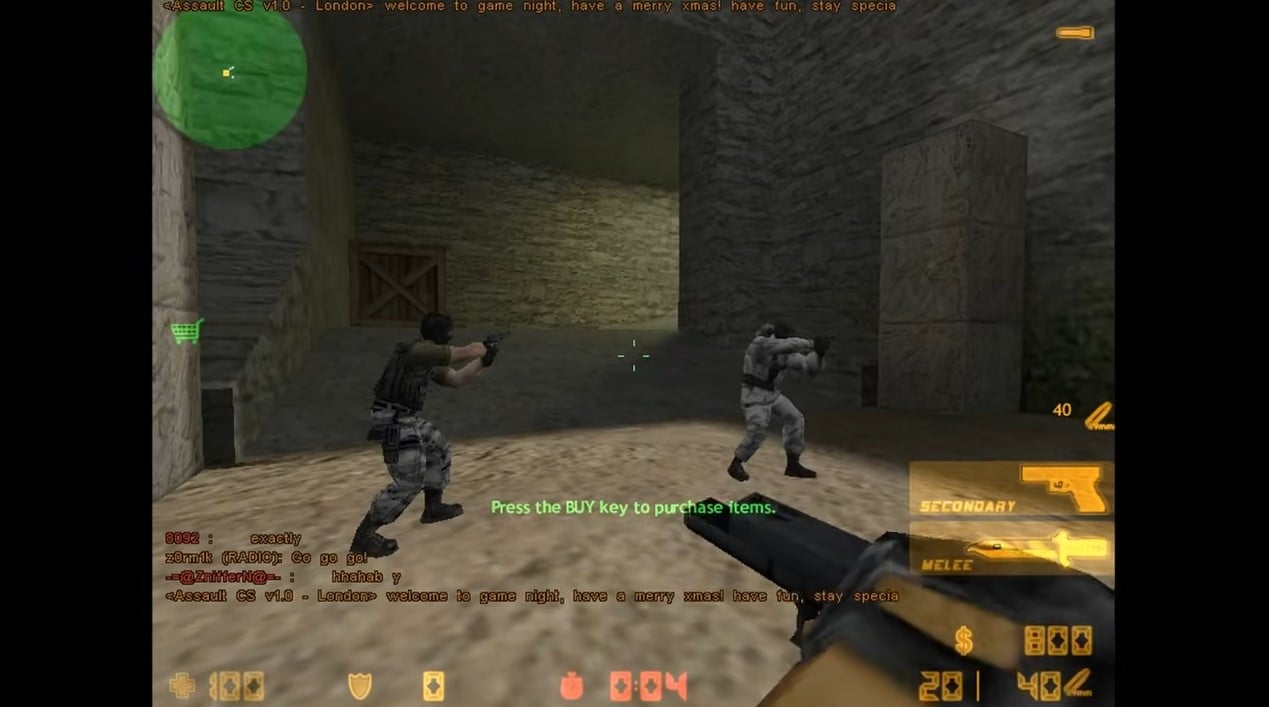
The massive popularity of the Half-Life mod was not overlooked. The creators of Half-Life, Valve Corporation, soon saw the potential of the game and bought the rights, as well as recruited Le and Cliffe to carry on their work. On November 8, 2000, the first official retail version, Counter-Strike 1.0, was launched by them. This was a historic moment as it was a finished product that was no longer a mod but had entered the mainstream. It had all the features of a complete, polished product including dedicated servers, new weapons, and the final versions of the classic maps like Dust and Assault.
The first version thus laid down the fundamental aspects of the game. The signature gunplay, where each weapon had its own specific recoil that the players had to learn and master, was at its full fledged. The use of grenades for tactical purposes such as flashbangs and smoke grenades becoming an important part of gameplay was also evident.
For several players, this was their initial exposure to a highly competitive online environment. It was not just a matter of quick reflexes anymore but rather communication, strategy, and being one step ahead of your opponents. The community had an exponential increase in numbers which was a very positive thing for the game as it started to have the stigma of being a serious competitive title.
2001 – Counter-Strike 1.3
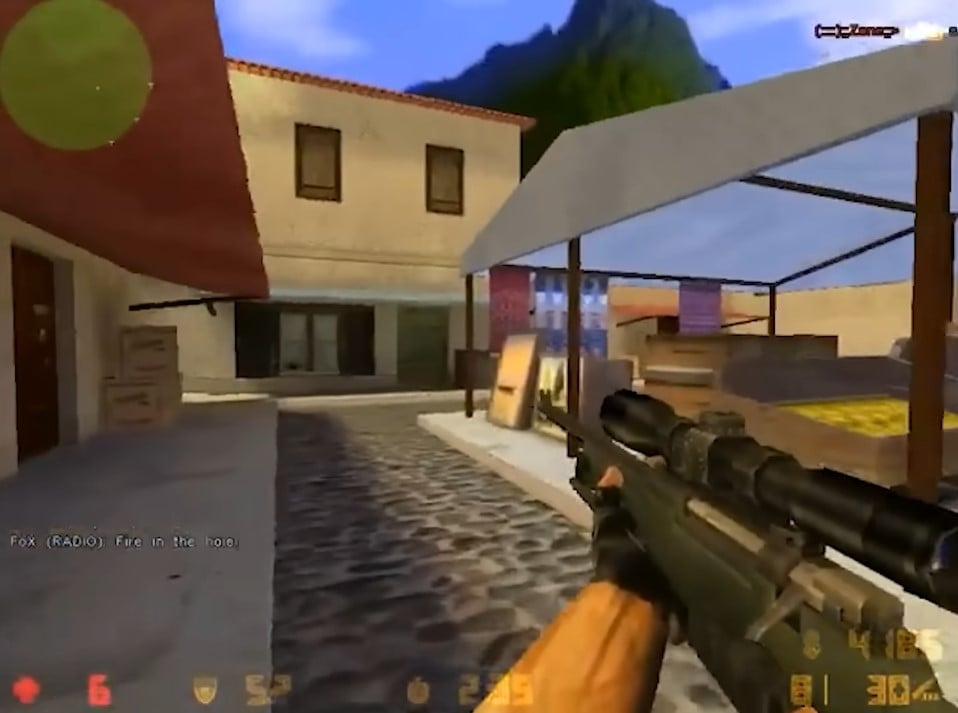
Counter-Strike 1.3’s launch in 2001 can be seen as a small update that had a major impact on the game’s future by introducing the spectator mode. This feature changed the way people watch and follow competitions since it was no longer necessary to be part of the match to see the action. Big things were coming for the game’s pro scene, which was just starting to gain momentum.The adoption of the spectator mode meant that the organizers of the tournaments could extensively broadcast the matches to attract more viewers, and the beginners could learn the great secret of watching the pro leagues to use the same tricks and tactics.
The first time that esports had such an influence on the history of esports was the moment when watching and learning were allowed. The game became more than a mere competitive hobby and evolved into a legitimate sport with a fanbase that kept growing. It was the first step for the stars of the game to become names familiar to everybody in the early days of the competition when the fans were little in number. It set the stage for pro players to show off their skills to a wider audience.
2002 – Counter-Strike 1.5
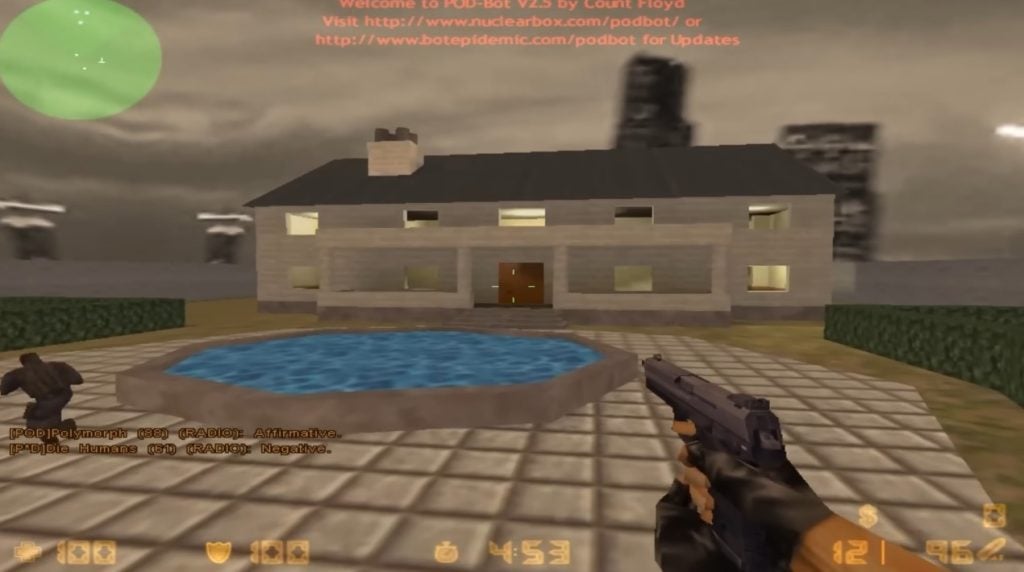
The 1.5 update brought various changes and improvements that were mainly focused on enhancing the game’s competitive aspect. The most important change was the complete removal of “bunny hopping” – a trick that enabled the players to move at unrealistic speeds by continuously jumping. This change was very important because it made movement more fair and skill-based, which meant that the performance of players depended on their aiming skills and strategies rather than on the use of game glitches. It was an indication that Valve was actively engaging with the competitive community and was committed to providing a game that was fair and balanced.
This update additionally brought the new maps and weapons, but what it mostly remembered for was its devotion to improving the fundamental experience. It was a demonstration that minor alterations could change the competitive scene dramatically and that the devs of the game were concentrating on delivering the optimum experience to their loyal fans.
2003 – Counter-Strike 1.6
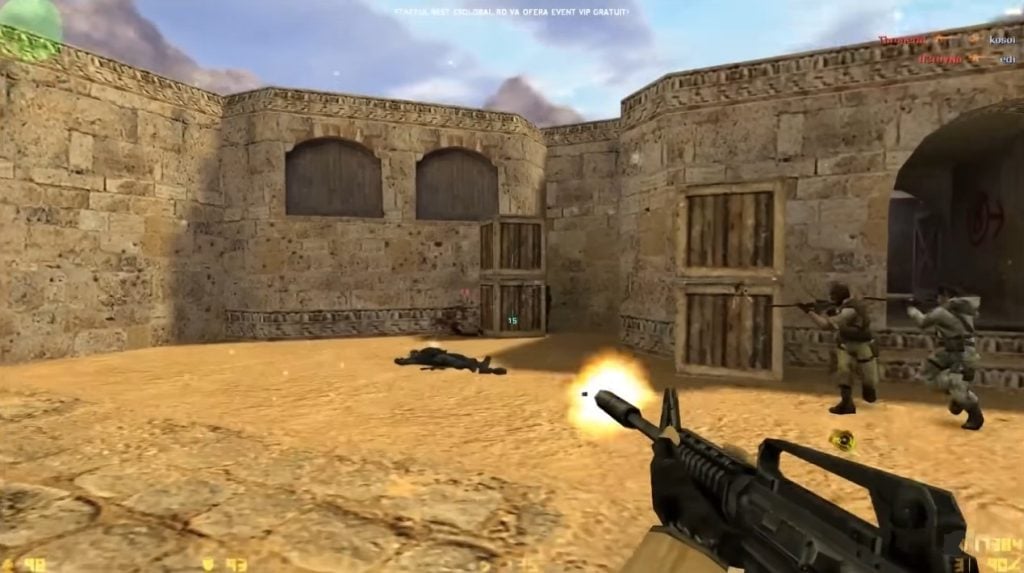
To many, the Counter-Strike 1.6 was the game that defined a whole era. Counter-Strike 1.6 came in 2003 and is frequently referred to as the most emblematic and fan-favorite variant of the original game series. Along with one of the 2 now-mythical firearms, the FAMAS and the Galil, which allowed more tactical plays for teams with less money, the game also welcomed the Tactical Shield, an item that was so divisive and powerful that it was even forbidden in most competitive leagues.
In addition to that, the game upgraded the buyer’s menu and the user interface. But the real thing that made 1.6 immortal was the perfect blend of GoldSrc engine classic gameplay and community-driven refinement after years. The combat was very accurate and fluid, and the movement felt incredible. 1.6 was the reference for all other competitive first-person shooter games for many years. It was the most played game in numerous pro leagues such as CPL (Cyberathlete Professional League) and WCG (World Cyber Games), and we can still observe its legacy in the present-day competitive shooters. This release was not only a game, but also a cultural landmark that the gamers’ community recognized.
Map exploration is one of the most entertaining activities in this game. Use a comprehensive guide like top 5 famous maps in Counter-Strike 1.6 which is perfect for enhancing your gaming experience. Additionally, you can install Counter-Strike 1.6 on your own server, for more stability and performance, and be recognized by the gaming community, by investing in Ultahost’s Counter-Strike 1.6 hosting.
2004 – Counter-Strike: Condition Zero
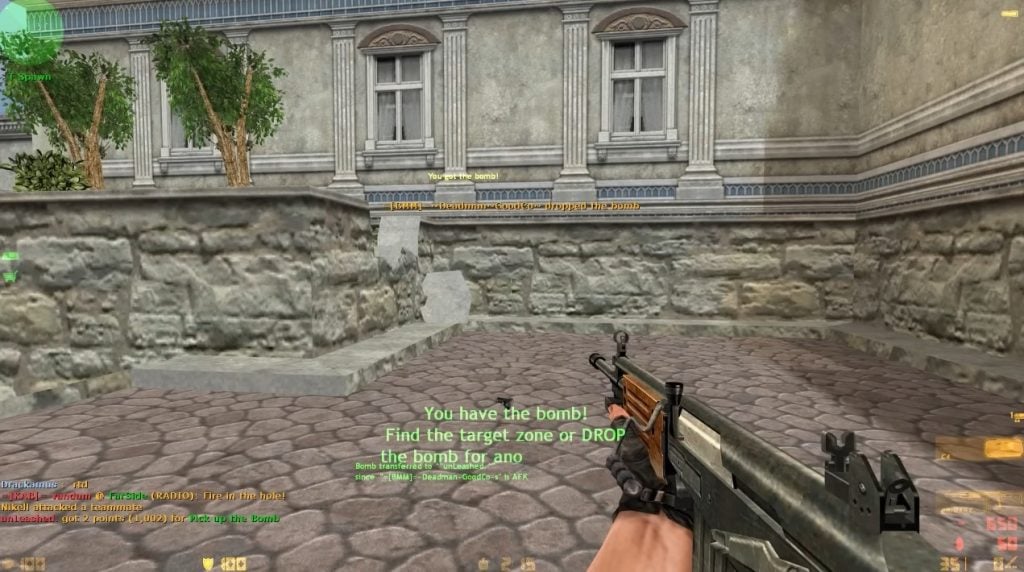
Condition Zero came out as an expansion Counter-Strike universe in early 2004. It contained a single-player campaign with missions that players could complete and a multiplayer mode, which was basically an updated 1.6 with better graphics and character models. Nevertheless, the game got lukewarm feedback from the community. The single-player mode, consisting of pre-scripted missions and bots, failed to capture the intense, player-driven drama of the original multiplayer.
However, Flag Zero Condition is still an essential milestone in the history of the series. It was a playground for new concepts and a transition to the next major release. Besides, it had a campaign called “Deleted Scenes” which was a different source of the game’s lore. Though it was not the most popular among the entries, it indicated that Valve was contemplating the growth of the franchise and its world beyond just multiplayer.
Gear Up And Get Ready To Face The Opponent
Try out these strategic and tactics to outsmart your opponents. Share your gameplay experiences with the community and become a legend in the world of Counter Strike. For an even more immersive experience, consider upgrading to premium server hosting at Ultahost.
2004 – Counter-Strike: Source
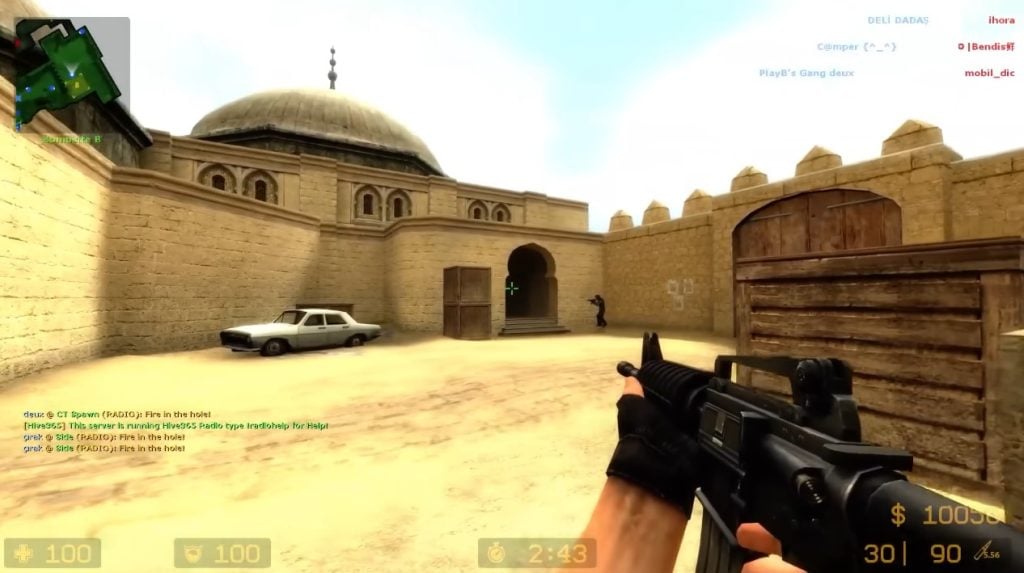
Counter-Strike: Source was a massive technical leap made later in 2004, half a year after the release of Half-Life 2. It was the first game of the franchise that was based on Valve’s new Source engine. This implied a huge overhaul of the graphics, including much more detailed and realistic physics, as well as ragdoll effects that gave the impression of the game being more lively and up-to-date. The difference in visuals was incredible, with the addition of the detailed maps, the enhanced lighting, and the realistic smoke and fire.
Nevertheless, the game had the effect of creating a substantial rift among the community. More specifically, the newly developed Source engine’s physics and weapon handling were quite different from those of the GoldSrc engine that 1.6 was based on, so the veteran players felt that the gunplay was less accurate and the movement was somewhat “floaty.” For many years, the community was divided between the purists who only played 1.6 and those who followed the new look and the physics of Source. With time, though, Source managed to gather its own loyal community and turned into a successful competitive game, thus, the future of the series was made possible.
You can experience the legacy of Counter-Strike: Source with specialized CS: Source server hosting offered by Ultahost. Our servers are best enough to deliver the ideal performance For Source Engine-based games. They have minimal latency, and the games always run smooth.
2012 – Counter-Strike: Global Offensive
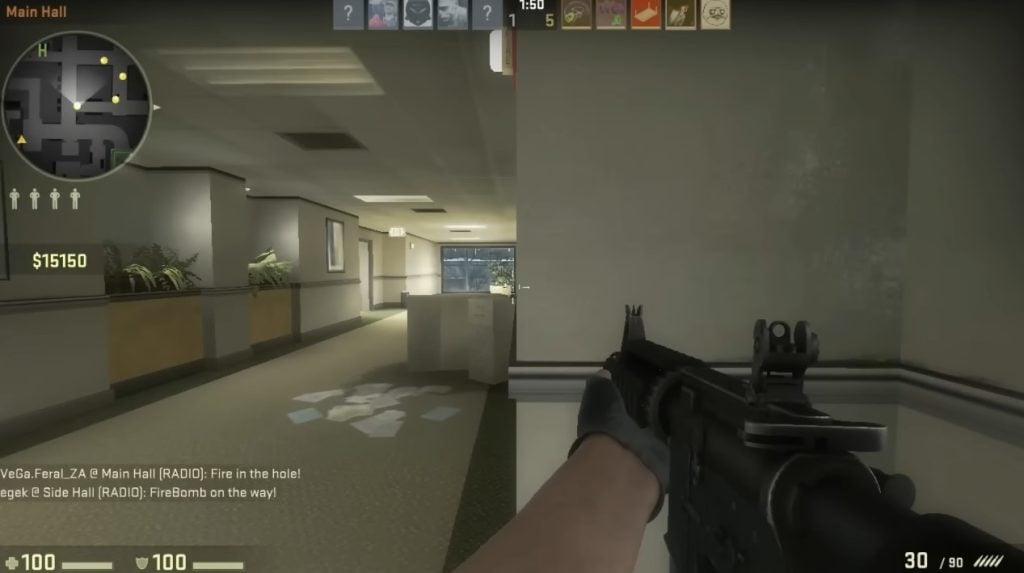
After several years in which the community was divided, Valve, together with developer Hidden Path Entertainment, decided in 2012 to launch Counter-Strike: Global Offensive (CS:GO). Their main objective was to develop a recent version of the game which would be able to merge the player bases of 1.6 and Source.
They managed a victory no one could have expected in such a manner. Not only CS:GO was successful in bringing together the communities, but it also exploded as a global phenomenon. Besides, the game unveiled an entirely new and solid competitive matchmaking system with ranks and skill groups which enabled players to find fair matches on dedicated servers.
One of the innovations that CS:GO brought was the skin economy that is today one of the main aspects of the game. Players could now custom their characters with weapon skins that they could either earn or buy. Consequently, an enormous in-game marketplace and a large community of artists and traders emerged. In addition, this new economy, accompanied by a free-to-play model that was implemented later, was the main factor of the game’s exponential growth. CS:GO positioned itself at the forefront of modern esports and its Major tournaments attracted full-capacity arenas and millions of online viewers.
Apart from this, the developers kept adding new game modes to increase the ways of playing and to encourage players to train. So, along with new and veteran players, these are the moddes that were gradually included in the game: Arms Race, Deathmatch, and Demolition. Undoubtedly, the enormous triumph of the game was the perfect proof of the timeless tactical design of the franchise, and the classic formula could still be very well-liked in the new period of gaming.
2018 – Counter-Strike: Global Offensive Danger Zone
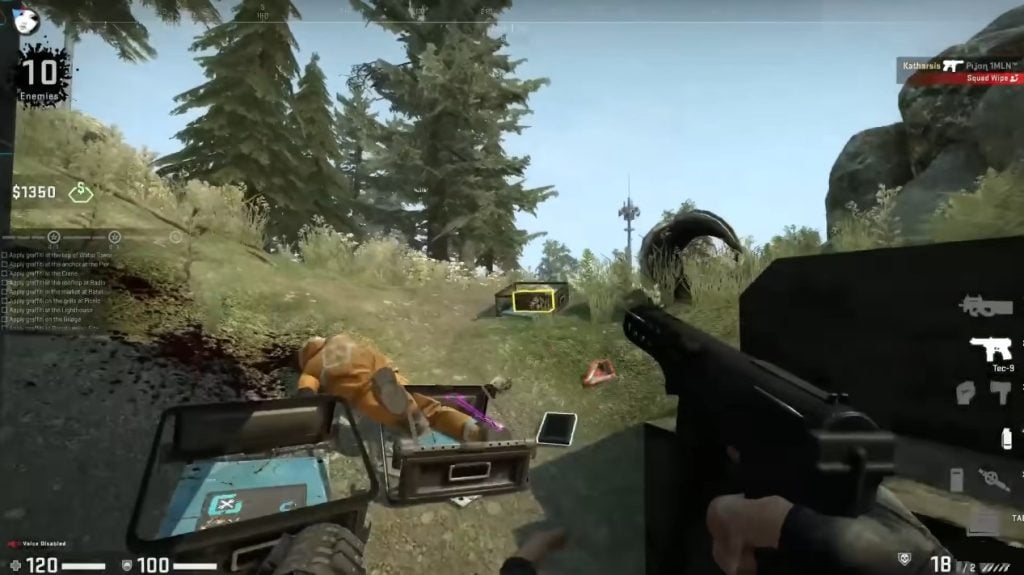
Valve, in an unexpected and daring decision, released a significant free update for CS:GO titled Danger Zone in 2018. This was a battle royale mode that took the genre but with a unique Counter-Strike twist. The players were allowed to fall into a huge map, find weapons and equipment, and last whoever remained alive. The game mode was a radical change from the traditional 5v5 bomb defusal, as the focus was shifted to survival and fast decision-making.
The community was not ready for such a monumental surprise, Danger Zone. Even though it did not play against the main game mode with full force, it still represented that Valve was open to experimenting and trying new things with the franchise. The game mode attracted a fresh batch of players, who were intrigued by the battle royale genre, and offered a nice, quick-paced alternative to the already existing players. The update was a big deal as it emphasized Valve’s dedication to making the game still alive and attractive to today’s audience.
2021 – Counter-Strike: GO – Operation Riptide
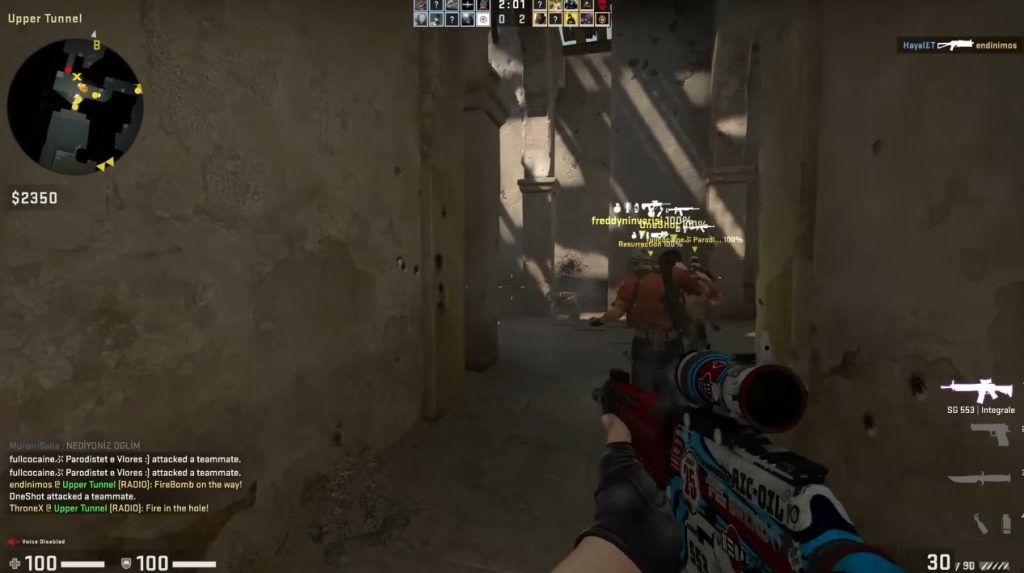
While the gaming community was abuzz with speculation about a new Counter-Strike game, Valve persisted in supporting CS:GO with regular major updates. Among these, Operation Riptide was undoubtedly one of the most crucial late-stage modifications to the software. It permeated with new maps, a new mission system, and, above all, new concepts for playing.
One of the most liked additions was the feature to have private queues, through which players could create their own matchmaking lobbies with friends or community members on official servers. Moreover, the operation led to the shortening of competitive matches, and they quickly became popular among those players who were not able to devote 30 minutes to a full game.
This was a visible indication of Valve taking the community’s feedback on board and implementing the changes that were beneficial for the users. The operation made it clear that, even after twelve years, CS:GO was still a game that lived and breathed with a devoted crew working day in and day out to make it better.
2023 – Counter-Strike 2
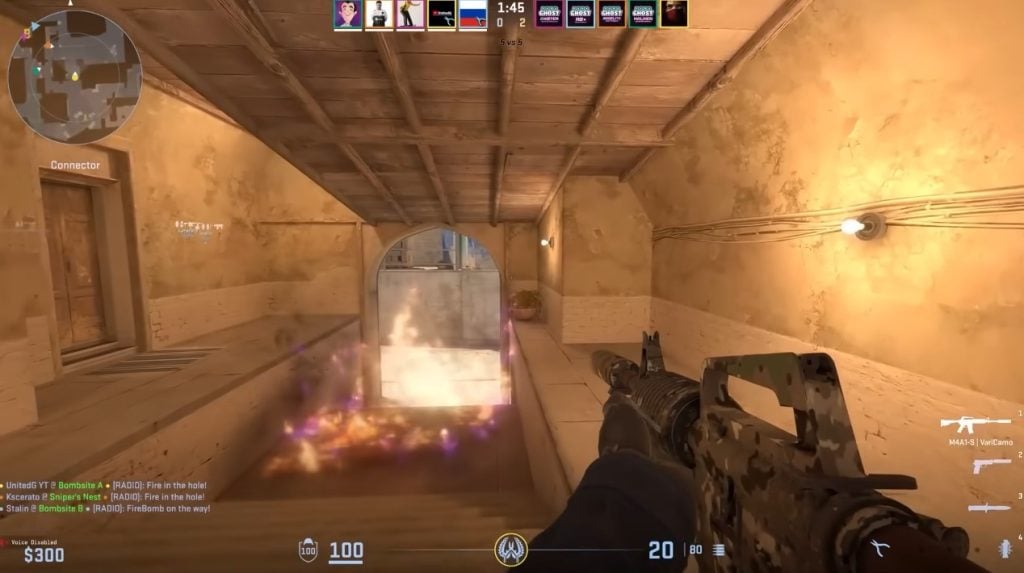
Valve in 2023 announced something which shook the whole gaming world: Counter-Strike 2 was not a different game but a free and complete update for CS:GO. The game rebuild from scratch on the Source 2 engine, hence the switch to the new era of the franchise with a number of new features and also technical improvements.
The most significant changes were in the engine. New “sub-tick” architecture had a big impact on competitiveness in the game. Instead of a server “tick” that comes between action and registration, which is how it was before, the new system registers every single action right at the moment they happen. Therefore, your shots and movements will be more accurate than ever before. One more big update was that the smoke grenades are now volumetric and dynamic. While the old smokes were unchangeable in shape and volume, these new ones can be interacted with by other grenades, thus the possibilities of using them in a new way and also creating new tactics during the fight. Most of the visual aspects got completely revamped as well, with awesome new lighting and effects contributing to making even the oldest maps look fresh.
Valve has been constantly updating the game since its launch, these updates include new content and fixes that come from community feedback. The game has been updated by adding night versions of Ancient and Shoots, and a notable change at the Ancient A-site has altered the way the angle can be used for defense. The esports scene is also going through changes. The Majors will now have up to 32 teams participating and a new ranking system is also being implemented. This edition is destined to go further than the extraordinary heritage of its forerunner and thus will keep on setting new standards for the competitive shooter genre.
2025–Counter-Strike 2 Updates & Esports Expansion
2025 has been a year full of changes for Counter-Strike 2, that are both significant and extensive in the game, as well as in the global esports scene. Valve rolled out a few major patches that mostly included the new exciting content and performance improvements along with the existing ones.
The most discussed feature among others is the one that has been added for maps “Ancient” and “Shoots”, naming it “Nighttime” and each of these two got a completely new look with shaders for wetness and moss blending that really challenge the visibility of the players and their tactical approaches. Along with these eye candy changes, the game has been given a revamp with the weapon animations and the inspect feature, which essentially means that everything from rifles to knives has gotten the upgrade and is now more sleek and responsive.
The picture of competition is also changing dramatically. Esports World Cup 2025, that took place in Riyadh, was a $1.25 million prize pool and a single-elimination format event, which got us 16 top teams from around the world. The energy of the competition, along with the aforementioned high stakes, turned it into an event that nobody wanted to miss.
Talking about the tournament format, Valve has made a radical alteration in the way teams get their spot for Majors as they completely got rid of the RMR (Regional Major Ranking) system. The novel format is characterized by 32 teams division across 4 stages and invites are now decided solely on the basis of Valve’s official rankings.
Other major changes have been made to create a more open and lively competitive scene. In the official Valve leaderboard, female teams are now allowed to Major events based on their results, a decision warmly welcomed by the community. When it comes to the maps, the classic Train has finally come back after a very long time to the Active Duty map pool, thus taking over from Vertigo and making all the teams face the same old battle with new strategies again. Additionally, the game is now accessible to players from all over the world, with SKYEsports organizing four CS2 tournaments giving away a total prize pool of $1.75 million.
The BLAST Premier circuit has broadened its scope to include new locations such as Singapore and India, and a live ESL Pro League event is planned to come back to Katowice’s Spodek Arena in 2026 with a bang. These changes mean that the year of 2023 will be a turning point in the growth of CS2 as it will be hard for the game to lose its place at the head of the global esports.
The Legacy Continues
Counter-Strike’s path is a perfect example of how vital good core design and a loyal community are, as well as the creators’ vision. Starting as a mere mod made by two friends, it has become an industry worth billions with an audience of millions worldwide. The game has always been recognized by the combination of strategy, the requirement of high skills, and the spectacular moments of the game.
Despite various game updates over time, the essence of Counter-Strike has not changed. It is still the same situation where two teams, a bomb site, and the closest to warfare concept are tested for teamwork and skills.
If you enjoy the journey of Counter-Strike evolution through time then elevate your experience with Ultahost’s Dedicated Game Server Hosting. Benefit from multiple locations, managed servers, DDoS protection, and SSD NVMe storage.
FAQ
Is Counter-Strike a multiplayer game?
Yes, players can enjoy playing with friends or others online.
How do you win in Counter-Strike?
Winning depends on completing objectives or eliminating the enemy team before time runs out.
Are there different versions of Counter-Strike?
Yes, there are several variations, including Counter-Strike 1.6, Condition Zero, Source, and Global Offensive.
Can I play Counter-Strike on consoles?
Some versions, like Global Offensive, are available on consoles like Xbox 360 and PlayStation 3.
Does Counter-Strike have a battle royale mode?
Yes, Global Offensive includes Danger Zone, a battle royale mode with up to 18 players.





